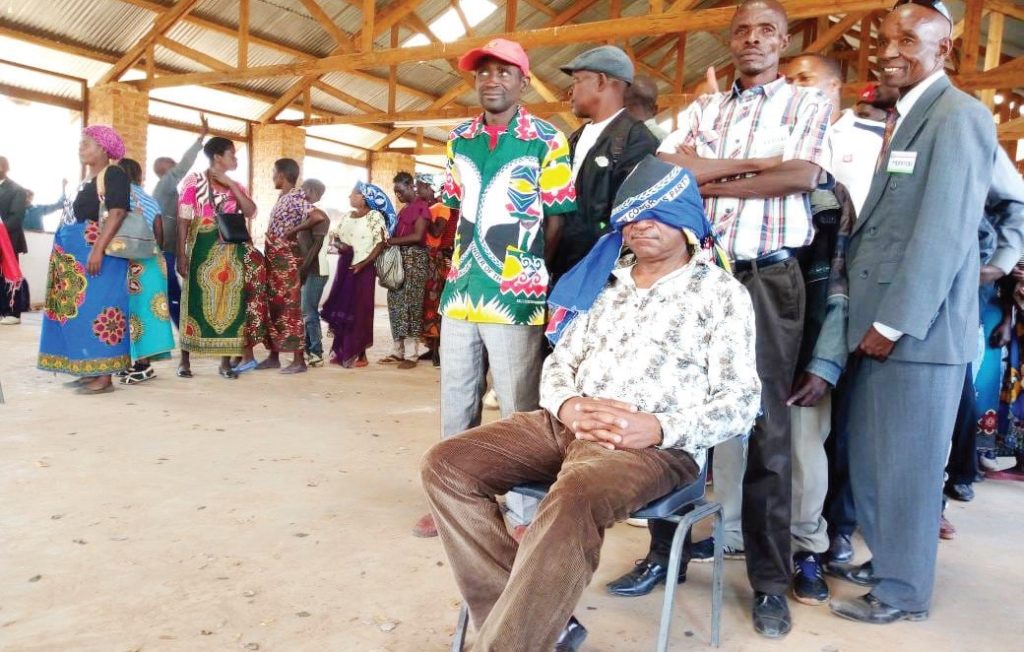Vote manipulation, violence in primaries
A heart-piercing bullet hole on independent parliamentarian Roseby Gadama’s vehicle, is a constant reminder of a primary election’s torture she endured.
The bullet could have ended her life and National Assembly bid–a bloody and premature tragedy for a new political entrant.

The current Parliamentary Women Caucus chairperson aspired to represent the Democratic Progressive Party (DPP) in Zomba Thondwe Constituency in 2019.
However, her dreams were shattered when primary elections turned into a battle field.
“The party wanted a male candidate to represent it. The results were manipulated in his favour in a very shocking manner.
“The party leaders presented us with a list of ineligible delegates, meaning we were selling our manifestos to the wrong people.
“The party’s preferred candidate had the right list and he won with a landslide,” Gadama harks back into the past.
She further recalls lodging a complaint with the party which later reorganised the primaries.
This time though, the process ended in a thud of tear gas explosions and sounds of gunfire. It led her to opt to contesting as an independent candidate. She won.
“More than six pick-ups, full of police officers stormed the venue. We were harassed when my car was shot at.
“Fortunately, I had swapped vehicles. Otherwise, I could have lost my life,” she asserts.
Summing up primary elections, Gadama concludes: “Parties have their own people and this hurts the will of the people.
“There’s a need to level the playing field and I don’t see that happening. Mostly, the victims, sadly, are women.”
Gadama’s story echoes in the hearts of hundreds of parliamentary seat aspirants duped during primary elections as a study has exposed flaws in constituency primaries, declaring as unclean 54 percent of the results that placed key political parties’ candidates on the 2019 Parliamentary ballot.
Denmark-based Aarhus University and Michigan State University researchers published a paper titled: How Does Primary Election Manipulation Affect the Selection of Women Candidates? Evidence from Malawi.
The freshly published research says voting and vote count manipulation— in some cases involving party officials—violence and bribery were widespread.
“Typically, several of these flaws occurred in conjunction. In total, 54 percent of contested primaries were marred by one or more of these flaws, while the remaining 46 percent of contested primaries we observed were clean,” the report reads in part.
The paper focused on governing partners Malawi Congress Party (MCP), UTM, opposition Democratic Progressive Party (DPP) and United Democratic Front (UDF).
The two institutions dispatched observers in all the country’s 193 constituencies.
On bribery the report says: “In 15 percent of primaries, our monitors observed bribery on site. Most commonly, candidates offered delegates small amounts of money in exchange for their support. Bribes could also involve promises of food or alcohol.
“In an MCP primary in the Southern Region, our observer reported that an agent of one candidate was sent to hand out K4 000 [$5] to each delegate at the venue before the voting took place.”
It further reveals that in 13 percent of the primaries, the vote count was manipulated or debated.
Almost all parties have adopted a system whereby aspirants are blindfolded and voters queue behind their favourite.
The study flagged this system as prone to manipulation.
“Manipulation also happened during the voting. In seven percent of primaries, voters were pressured to move between lines. In a DPP primary in the Southern Region, voters dragged other voters from the line forming behind a female candidate to that of a male candidate.
“Presiding officers not only tolerated the transgression, but also encouraged it by harassing the delegates at the back of the female candidate’s line, suggesting they should move over,” the researchers write.
The violence and unrest, the study finds out, marred 14 percent of primaries.
They ranged from delegates of certain candidates “physically threatening officials or attacking other candidates to in fights between delegates or supporters that left people hospitalised with serious injuries.”
Legitimacy of the delegates also came into question as the research found out: “most commonly, in 29 percent of cases, our monitors reported the legitimacy of delegates was contested, typically reflecting certain candidates—supported by officials or using force—succeeding in having unregistered supporters vote in the primary.”
It continues: “At a UTM primary in the Northern Region, our observer recorded that a candidate was prevented from winning the primary, as her area committees—unlike those of her opponent—were not verified by officials.”
Furthermore, the research’s descriptive statistics showed that manipulation was more prevalent in party strongholds, where incumbents run in primaries and in urban areas.
Reacting to the findings, MCP spokesperson Ezekiel Ching’oma said the party does its best to ensure primaries are free and fair.
However, he acknowledged the flaws which are certain in every system.
Looking ahead to future primaries, he said the party will try to conduct a secret ballot.
“Later we are going to weigh out which one is the best in terms of achieving cleaner primary election results,” he said.
UDF spokesperson Yusuf Mwawa admitted that administration of primaries has been poor on their part and that they are devising a better system.
He said the party was looking at a new system to apply during candidates’ selection for the 2025 elections.
“We indeed acknowledge that the system of ‘lining-up’ voters in choosing a candidate at primary level has proved ineffective for a free, fair and credible process at primary level.
“As such, the national executive committee will restructure a systematic pattern that absorbs a popular and a preferred candidate to carry the day in a manner that reflects the will of the grassroots,” he said.
But political commentators have always warned parties that they run the risk of disenfranchising their followers when they hold sham primaries.
DPP, UTM had not responded to our questionnaire despite reminders.





